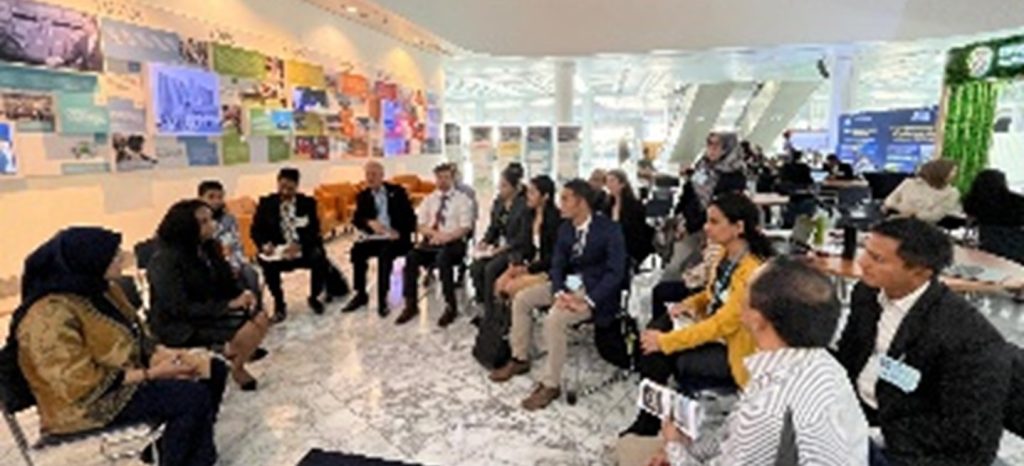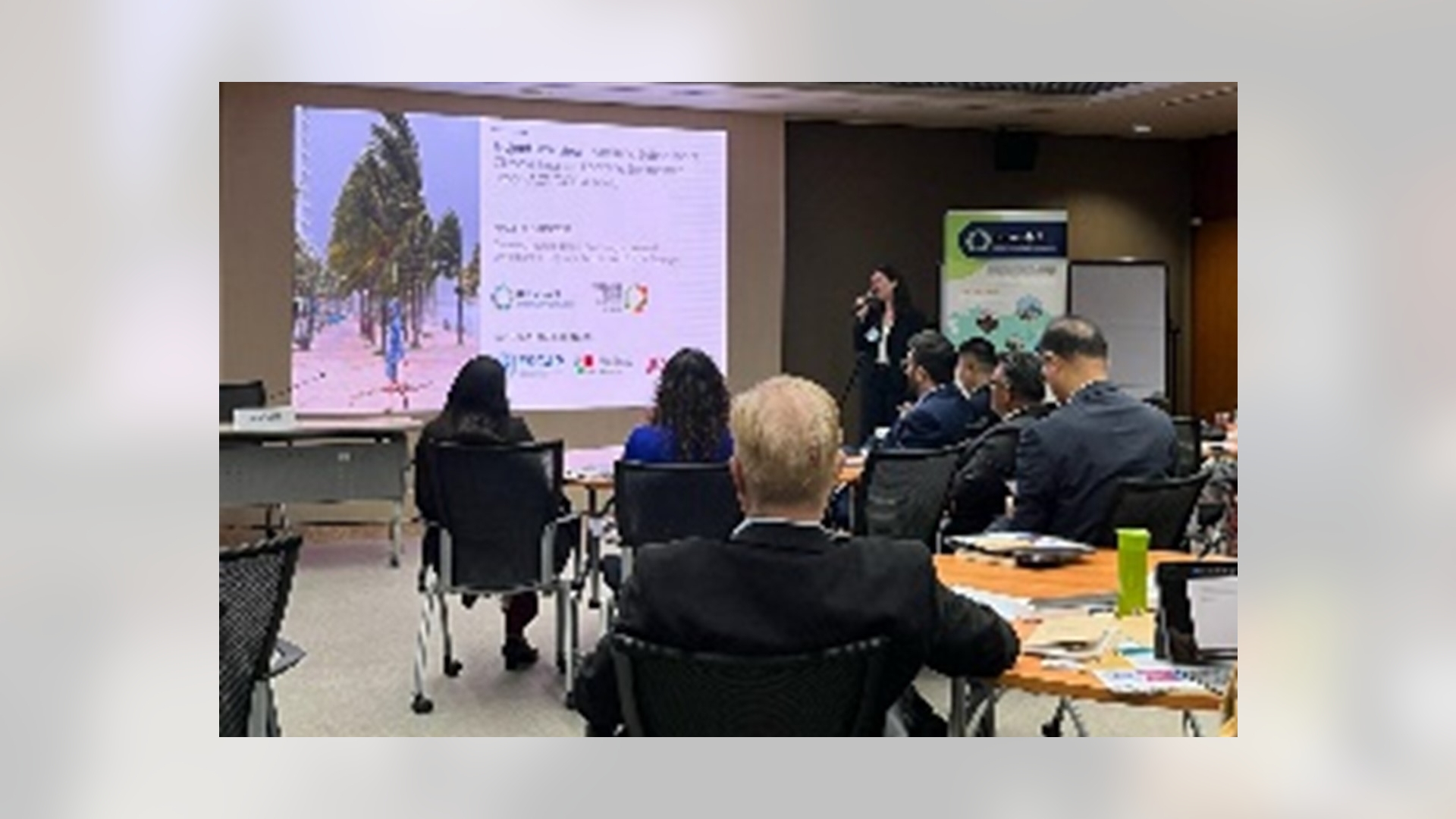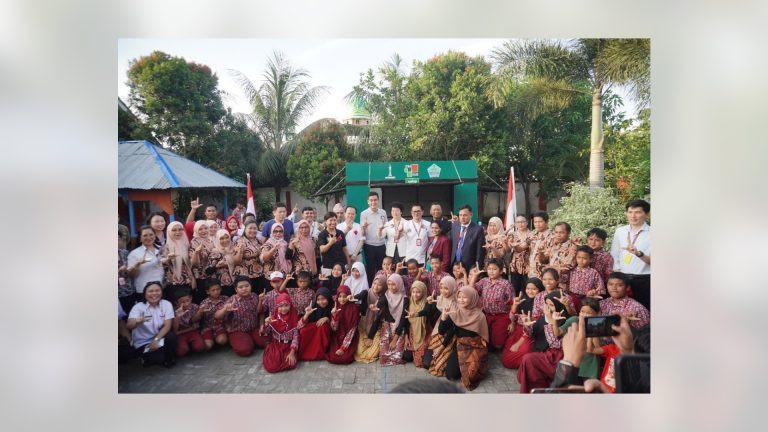February 21, 2024 | Bangkok – UCLG ASPAC, under the framework of the Urban-Act project, ensured the involvement of city governments in a dialogue on local action financing organised as the side event on the 11th APFSD with the theme of ‘Financing Local Actions for SDG13: Enabling Frameworks to Accelerate City Climate Finance in Asia-Pacific’.
Side Event Urban-Act at the 11th APFSD: Financing Local Actions for SDG13: Enabling Frameworks to Accelerate City Climate Finance in Asia-Pacific
This side event was jointly organised by the United Nations Economic and Social Commission of Asia and the Pacific (ESCAP), Deutsche Gesellschaft für International Zusammenarbeit (GIZ), United Cities and Local Governments Asia Pacific (UCLG ASPAC) and Cities Climate Finance Leadership Alliance (CCFLA) as well as other participating Urban-Act partners.
The event commenced with opening remarks from Mr. Mohamed Faiz – State Minister, Ministry of Housing, Land and Urban Development Maldives, delivered by Ms. Aishath Shahula, First Secretary of Embassy of Maldives in Thailand. The remarks underscored the pivotal role of finance in the Asia-Pacific region, acknowledging its contribution to economic growth and prosperity. He stressed the importance of collaboration between governments, financing institutions, and other stakeholders to align efforts with the Agenda 2030, particularly in the context of climate finance.
The urban regional assessment framework methodology was presented by CCFLA, highlighting the standardised approach for analysis of enabling framework conditions related to cities’ ability to access climate finance. This methodology seeks to support subnational governments throughout the Asia-Pacific region in accessing and financing low-carbon, climate-resilient development. The assessment tool is focusing on four aspects of evaluation, including 1) climate policy, 2) public finance and budget, 3) climate data, and 4) vertical and horizontal coordination.
The discussion panel explored strategies for improving access to climate finance for cities in Asia Pacific. Ms. Anna Amalia from the Ministry of National Development Planning/Bappenas Indonesia, highlighted various finance bottlenecks faced by cities, including issues related to leadership, capacity, and authority. Meanwhile, Mayor Jane Censoria Cajes-Yap of Tagbilaran City, the Philippines, discussed opportunities to enhance mechanisms such as disaster risk reduction laws and the updating of local climate action plans. Additionally, Mr. MD Ansiur Rahman from Sirajganj Municipality, Bangladesh, underscored the significance of legal mandates, policy frameworks, and capacity building as essential elements of the enabling framework for cities’ climate finance. Sirajganj Municipality also shared its initiatives aimed at attracting climate finance, including the development of green infrastructure and the restoration of water channels.
On behalf of UCLG ASPAC, Mayor Ashok Khumar of Dhulikel delivered his closing remarks, expressing hope that the framework presented would pave the way for cities to access climate funding effectively. He stressed the potential of such initiatives to enhance climate resilience and inclusivity, urging continued collaboration among participants to ensure that climate finance serves as a catalyst for building resilient and inclusive cities.
In the occasssion, UCLG ASPAC also ensured cities channeled their voices in Urban-ACT Partners Meeting held prior to the side event. Representatives from each of the pilot cities in Urban Act, such as Padang City, Khonkaen City, and Tagbilaran City; shared their concerns related to their respective focal areas.
- Mr. Didi Aryadi from Padang expressed concerns about urban mobility and advocated for transitioning to electric vehicles to support low-carbon environments.
- Ms. Anna Amalia from the Indonesian Ministry of National Development Planning highlighted national-level focus on medium-term development planning and the need for climate resilience action plans at the city level.
- Dr. Pasit from Khonken City shed light on the city’s initiatives in climate change management,
- Mayor Jane from Tagbilaran City discussed the city’s focus on land use planning and waste management.
- Other participants from Bangladesh mentioned notable progress have been made with policy documents such as climate resilience masterplans and Green Climate Fund projects. ESCAP highlighted Bangladesh’s role as an emerging centre of excellence for adaptation, emphasising the importance of sharing knowledge with other nations.
Urban-Act Partners Meeting Sets Agenda for Climate Action in 2024

The gathering brought together consortium partners, including ESCAP, GIZ, and UCLG ASPAC; each presenting their priorities and timelines for the upcoming year.
- ESCAP’s Priorities: the assessment of national enabling conditions for cities to access climate finance, introduced project concepts such as the IMT-GT Green Solid Waste Management and Sustainable Urban Mobility, aims to launch a city climate finance matchmaking programme and conduct training sessions on climate-sensitive urban planning, plans to organise a webinar series focusing on climate-conscious cities.
- GIZ’s Priorities: building partnerships with pilot cities to align sector priorities and needs, aims to commence research and technical work in collaboration with government partners on climate-sensitive urban planning, plans to review climate plans and investment plans of cities to identify priorities, leverage resources for project preparation, and identify training needs for peer learning and knowledge transfer across cities.
- UCLG ASPAC’s Priorities: the assessment of city enabling environments for environmental and climate change governance, plans to publish a policy brief on urban climate governance and policy instruments for climate-sensitive urban planning, support evidence-based climate-sensitive urban planning and the integration of climate change indicators into urban development plans, aims to develop a joint regional declaration and promote city pairing cooperation.
The Urban-Act partnership meeting served as a crucial gathering for aligning efforts and setting a comprehensive agenda for climate action in 2024. With strong collaboration and focused initiatives, the consortium aims to make significant strides in advancing climate resilience and sustainable urban development across the Asia-Pacific region.
Through the side event and partners meeting, the Urban-Act project secured the pathway for the smooth implementation of vertical integration of climate actions in the spirit of collaboration between stakeholders and partners.
Focusing on the completion of Output 1 (Improved institutional environment for climate-sensitive urban development) and Output 2 (Evidence-based and inclusive climate-sensitive spatial and urban planning) in 2024, the Urban-Act Project is setting the goals for the successful delivery of Output 3 (Project concepts for urban climate action investments identified).











